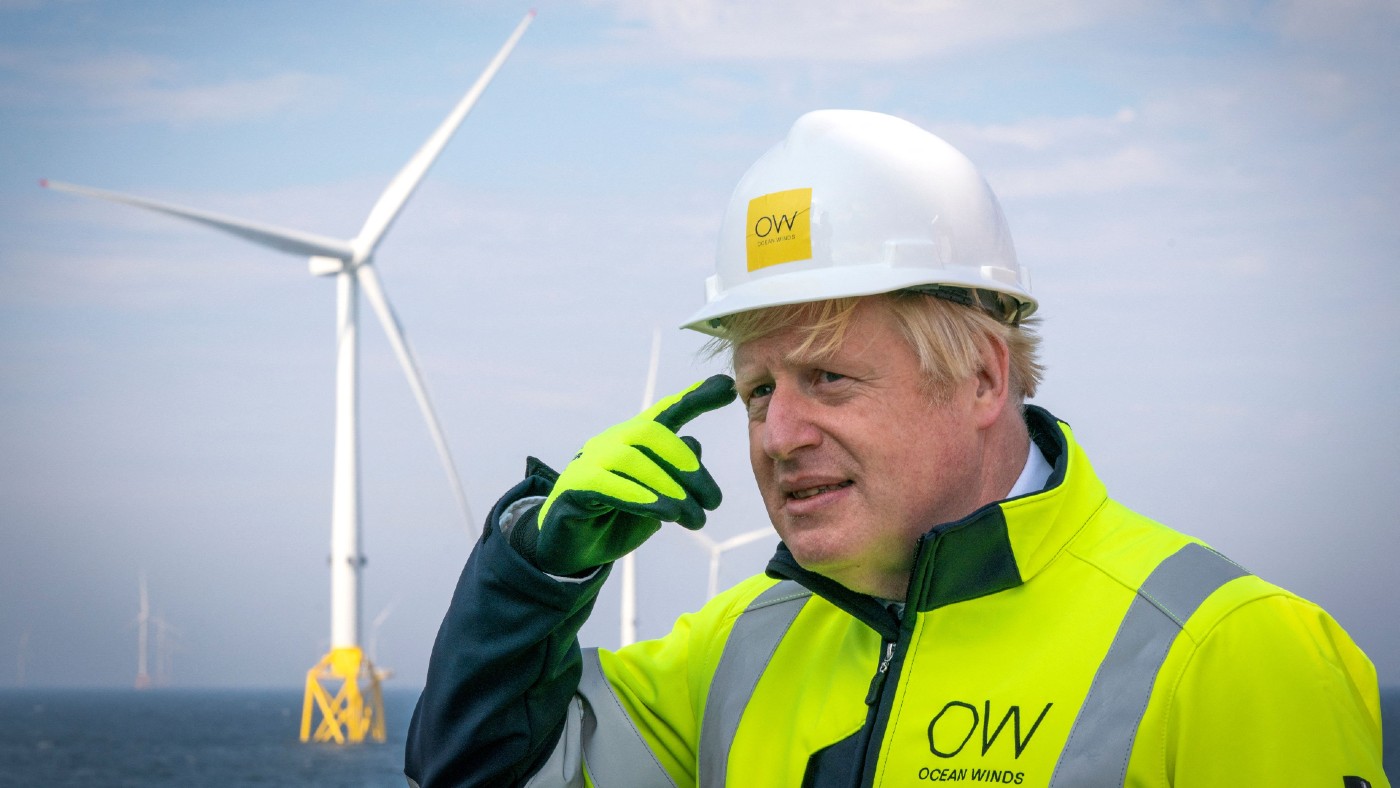Does Boris Johnson’s green agenda go far enough?
The ‘awkward squad’ are threatening to make trouble over net zero

A free daily email with the biggest news stories of the day – and the best features from TheWeek.com
You are now subscribed
Your newsletter sign-up was successful
The message from climate scientists in last week’s landmark report was clear, said The Observer: humanity must wean itself off fossil fuels now. While every nation must play its part, there’s a particular onus on Britain. It was here, after all, that the Industrial Revolution began, and it is Britain that is hosting the UN’s critical climate summit, COP26, in November. Many nations at the event in Glasgow will be looking to the UK for leadership, but it will be in little position to offer it. The Government has not only failed to set out a clear strategy for achieving net-zero emissions in the near future; it’s also continuing to support measures that directly undermine that goal. This “list of incompatibilities” includes the recent closing of the Green Homes Grant insulation scheme; freezing fuel duty; encouraging airport expansion; and delaying the phasing out of gas boilers beyond the planned date of 2035.
Boris Johnson has committed to cutting the UK’s greenhouse gas emissions by 78% of 1990 levels by 2035, and achieving net zero by 2050, said Elliot Chappell on LabourList.org. But based on its current trajectory, the UK is, according to government advisers, on course to cut only a fifth of the emissions needed to meet the 2035 target. To make matters worse, the PM is also facing a backlash from “reactive elements” in his party over his green agenda, such as it is. Among those warning that it risks alienating voters is Bassetlaw MP Brendan Clarke-Smith, who described it as a “hard sell asking people to make sacrifices when the rest of the world, China/Russia etc, are carrying on as usual”.
The “awkward squad” are threatening to make trouble over net zero, said Peter Franklin on UnHerd, but Johnson has “more allies than enemies” in this battle. The climate agenda appeals to the southern voters the Tories risk losing to the Lib Dems and Greens, and to voters in the North and Midlands who want investment in clean energy to revive local economies. The PM must stick to his targets, said The Times. We’ve already seen how economies of scale can reduce the cost of green technologies: wind is now a cheaper source of electricity than coal; experts expect the price of new electric cars to fall below that of petrol and diesel vehicles as soon as 2025. The price of other green technologies such as hydrogen fuel cells, heat pumps and solar energy should likewise fall over time. The costs of net zero should in any case be kept in perspective. The Office for Budget Responsibility reckons that decarbonising our economy will cost us some £1.4trn over 30 years. “That is less than the Government has spent on the pandemic in 18 months.”
The Week
Escape your echo chamber. Get the facts behind the news, plus analysis from multiple perspectives.

Sign up for The Week's Free Newsletters
From our morning news briefing to a weekly Good News Newsletter, get the best of The Week delivered directly to your inbox.
From our morning news briefing to a weekly Good News Newsletter, get the best of The Week delivered directly to your inbox.
A free daily email with the biggest news stories of the day – and the best features from TheWeek.com
-
 The ‘ravenous’ demand for Cornish minerals
The ‘ravenous’ demand for Cornish mineralsUnder the Radar Growing need for critical minerals to power tech has intensified ‘appetite’ for lithium, which could be a ‘huge boon’ for local economy
-
 Why are election experts taking Trump’s midterm threats seriously?
Why are election experts taking Trump’s midterm threats seriously?IN THE SPOTLIGHT As the president muses about polling place deployments and a centralized electoral system aimed at one-party control, lawmakers are taking this administration at its word
-
 ‘Restaurateurs have become millionaires’
‘Restaurateurs have become millionaires’Instant Opinion Opinion, comment and editorials of the day
-
 Earth is rapidly approaching a ‘hothouse’ trajectory of warming
Earth is rapidly approaching a ‘hothouse’ trajectory of warmingThe explainer It may become impossible to fix
-
 The plan to wall off the ‘Doomsday’ glacier
The plan to wall off the ‘Doomsday’ glacierUnder the Radar Massive barrier could ‘slow the rate of ice loss’ from Thwaites Glacier, whose total collapse would have devastating consequences
-
 Can the UK take any more rain?
Can the UK take any more rain?Today’s Big Question An Atlantic jet stream is ‘stuck’ over British skies, leading to ‘biblical’ downpours and more than 40 consecutive days of rain in some areas
-
 As temperatures rise, US incomes fall
As temperatures rise, US incomes fallUnder the radar Elevated temperatures are capable of affecting the entire economy
-
 The world is entering an ‘era of water bankruptcy’
The world is entering an ‘era of water bankruptcy’The explainer Water might soon be more valuable than gold
-
 Climate change could lead to a reptile ‘sexpocalypse’
Climate change could lead to a reptile ‘sexpocalypse’Under the radar The gender gap has hit the animal kingdom
-
 The former largest iceberg is turning blue. It’s a bad sign.
The former largest iceberg is turning blue. It’s a bad sign.Under the radar It is quickly melting away
-
 How drones detected a deadly threat to Arctic whales
How drones detected a deadly threat to Arctic whalesUnder the radar Monitoring the sea in the air